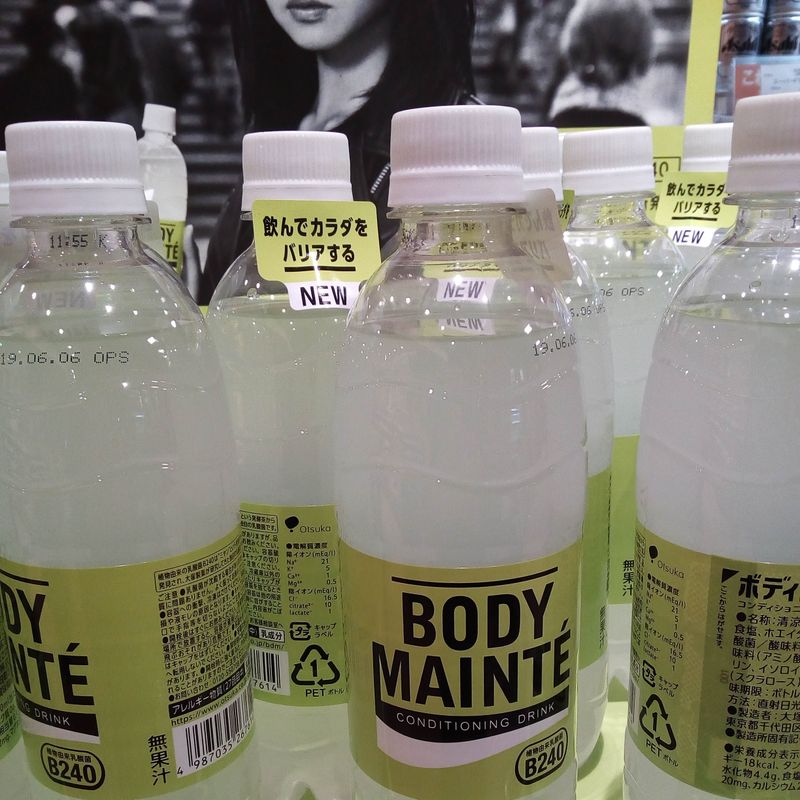Nov 21, 2018
Lack of Rest is Only Hurting Us

When a society needs a 'conditioning drink,' maybe we're working too much?
I don't do asa katsu. I don't do mornings very well at all. This is everyone in my family and my whole life, so I decided to go with it. I gave up trying and don't even schedule leaving the house before ten am ever if possible. (The exception is leaving to go on an outing or out of town because that's exciting. )
Asa katsu is 'morning activity' in Japanese. It's a fairly common practice among full-time employees who want to network or gain skills but have little time to do so. These lectures and conferences usually start at six am and last for about an hour, followed by around thirty minutes of socializing with a light breakfast. Some professionals do this every day or once a week.
This may not be surprising to foreigners living in Japan as we understand how hard people here work. It would sound crazy to most Americans, even though we're known for putting in the overtime too. My student told me about her new boss living in the US, a Japanese American in her 60s who barely sleeps because she's so career focused.
Living in a country where it's totally normal for full-time work to mean 60 hours a week, whether or not this is paid time, has taken it's toll on me. I've been through the time in my life where I worked like a maniac, multiple jobs and side hustles, never home, little sleep. I think by the time I reached 40 I was totally over that. It's not that I still don't have an urgency to do more, I just realize it's super bad for my mental health.
When I saw that teachers work an average of over 11 hours a day, it was easy to believe. I felt guilty for working only as much as they work in overtime. But my problem with this is the comparing of myself with anyone else. It's a downward spiral for me and it's super hard to avoid.
My students probably envy me for living abroad and having free time, but instead of focusing on that, I only see that they work full-time and fit in raising children and outings and even asa katsu. Some of the women I teach have their own businesses and no free time at all. While I might feel like I don't have free time, I have lots. I choose to cook all our meals at home with the exception of when my husband cooks something to give me a day off. I choose to volunteer and give myself time for working on what I love instead of focusing on a career.
My teaching job is just that: a job. I don't want a career. I do love my job and it's lucrative, but every time I work full-time, I get super stressed out.
I hope that our society gets over the competition of how many hours we worked or how little we slept. It's hard to watch my Japanese coworkers smile and say they are 'very sleepy' because they got two hours of sleep. I just wish they would realize now that they aren't getting that time back to spend with their kids and it's not worth it to work so much. I see a lot of foreigners living here who don't take a weekend, and work like crazy even into their forties. It's not a new concept that working more means you need to spend more to support that lifestyle, so you can't stop working.
Several years after quitting his horrible job, my husband still struggles with the trauma his previous boss put him through. I think a lot of people feel so stuck in their jobs, so addicted to the regular income, so scared to quit. Society puts so much pressure on us to fit in and work a full-time job. Especially where workers are lacking in Japan, it's easy to get questioned for choosing not to work full-time (with the exception of mothers of young children, sometimes). The furita (those who intentionally only work part-time) are always being looked down on.
I keep thinking I should find a seasonal job for my two week winter vacation. I need to stop it. It's not worth it. I need to take two weeks off to relax. Not travel in the crowds, but stay at home and sleep and lay around in the kotatsu all day. Of course I'll be bored immediately, but I'll have cleaning and cooking and so many projects I want to work on. I think we forget that we need to rest.



2 Comments
TonetoEdo
on Nov 22
You said “The furita (those who intentionally only work part-time) are always being looked down on.” I feel the pressure to stay full time. It’s partly economic - I’d lose income while continuing to pay high premiums - but I also feel like I can’t ask to step back from full to part time because I’d get my coworkers jealous. I wouldn’t be sitting on my butt - I want to spend time studying Japanese and doing professional development. You notice that people working full time, wearing suits, not sleeping enough look rough. They don’t look healthy. I’m always stunned when my coworkers come back from the new year holiday because they look like themselves rather than frazzled, exhausted drudges.
helloalissa
on Nov 23
@TonetoEdo I'm sure your coworkers wish they could make more time for personal development too. There's a reason our society has furita and hikikomori - we have a limit to how hard we can push ourselves. Add in a stressful event and it's likely overworked adults would be in the hospital for mental health problems.